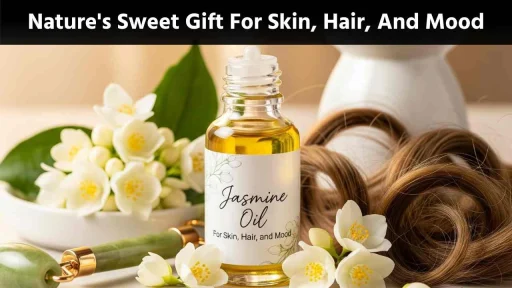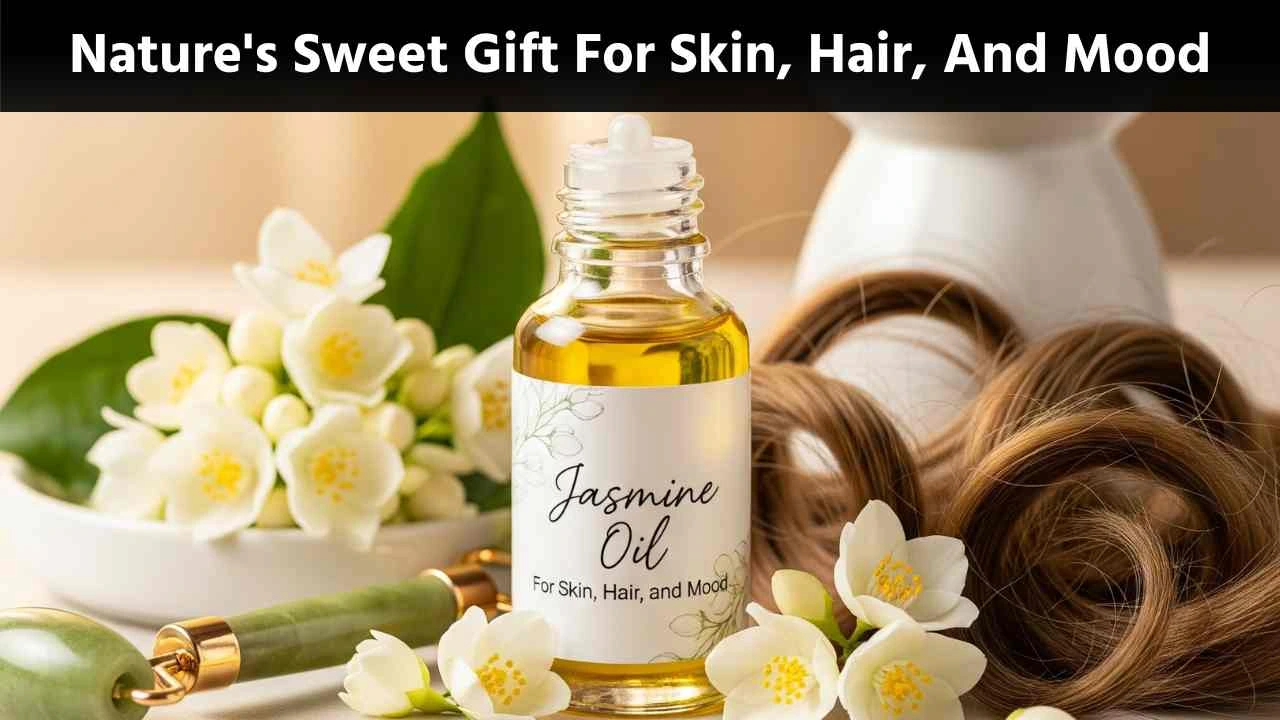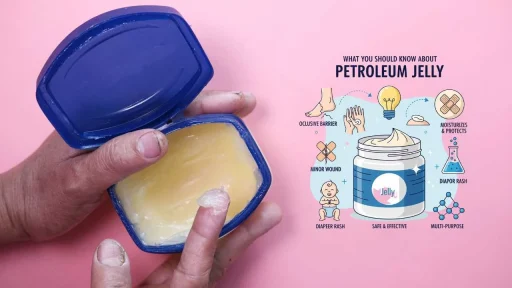The white flowers of jasmine are used to make Jasmine Oil. The oil is known for its rich, sweet fragrance. Since ancient times, people have used this oil in spiritual practices, perfumes, and skincare. The oil has numerous health and beauty benefits.
The jasmine flower blooms at night and the oil is usually extracted in the early morning hours or just before dusk. Steam distillation, or solvent extraction, is used to make this oil. Jasmine oil can be expensive but a few drops will go a long ways.
Learn how jasmine can help with skin, hair and emotions. It may even be able to help with health issues. We’ll also examine how to use the oil, its side effects, as well as common questions.
Read More: 15 Trending Cosmetics to Make and Sell for High Profits
Jasmine Oil Benefits
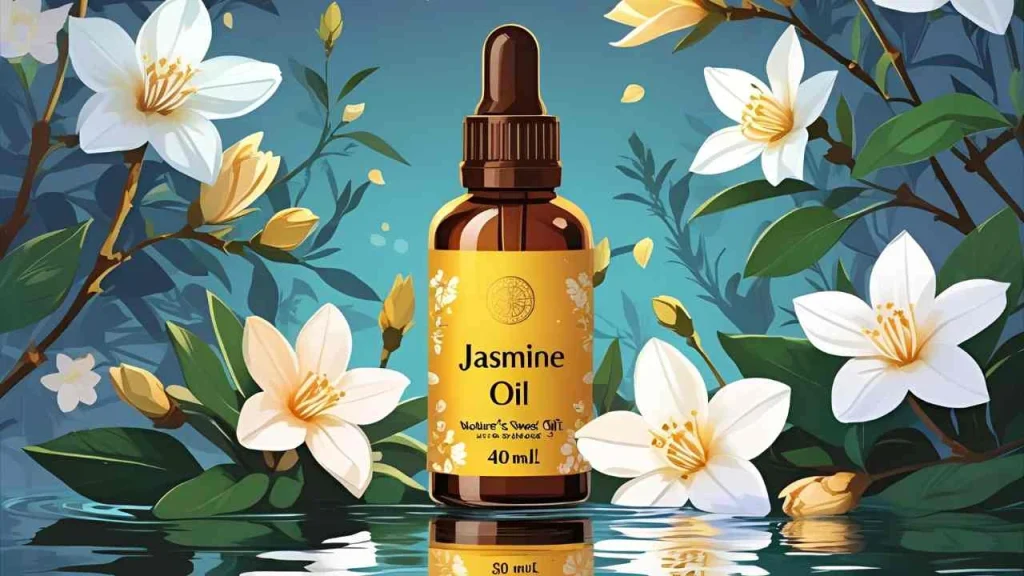
The wide variety of uses for jasmine oil are well-known. Here’s what it can do for you, from glowing skin to feeling relaxed and calm:
Good for skin
All skin types can get benefit from this oil. It can:
- Moisturize dry skin
- Scars and dark spots can be reduced
- Acne and Eczema Treatment
- Add a natural glow
Read More: How to Start a Cosmetic Unit with Serum, Cream and Shampoo
Makes Hair Healthy
You can also use ths oil to improve your hair.
- Hair fall reduction
- Controls dandruff
- Adds shine, smoothness and lustre
- Keeps your scalp healthy
Improves Mood
It has a distinct smell that is well-known to:
- You can lift your mood
- Stress and anxiety can be reduced
- Depression Help
- Feelings of happiness can be promoted
Boosts sleep
Use of this oil helps to calm the body and mind. It can:
- Improve sleep quality
- Restlessness
- Sleep aid that works like natural sleep aid
Natural Perfume
The scent of this oil is sweet and long-lasting. Many perfumes contain it. One drop on the wrist can last for all day.
Helps with Hormone Balance
According to some studies, this oil can help women who are experiencing PMS symptoms or menopause by balancing their hormones.
Want To Know About Which Business Idea Would Be Better For You?
Go Through Our Startup Selector Tool
How to Use Jasmine Oil Safely
Use it with caution, as this oil can be very powerful. Use it in the following ways:
For Skin
- Add 2-3 drops oil to coconut or almond oils
- After cleansing, apply to face or body
For Hair
- Add 2-4 drops to your hair oil
- Massage scalp and hair
- Let it sit for 30 minutes or more before washing
Aromatherapy
- Add 4-5 drops to a diffuser
- Relax your mind by breathing deeply
For Sleep
- Drop a few drops on your pillowcase or bedsheet
- You can also apply a diluted mixture to your neck
Perfume
- Use one drop behind the ears or on your wrist
- Let it absorb naturally; do not rub
Side Effects and Precautions
When used correctly, this oil can be safe. However, some people should take care:
- Use only after mixing with a carrier
- Ask your doctor before using if you are pregnant
- Use it away from eyes, ears and nose
- Test for allergies by applying a patch
Read Our Book On Cosmetics and Beauty Products
Types of Jasmine Oil
This oil comes in two types:
Jasmine Absolute
- Solvents are used to make the product
- Strong fragrance
- Many perfumes contain alum
Jasmine Essential Oil
- Steam distilled
- More Natural
- Use in skin care and aromatherapy
Essential oils are usually better for the skin and health.
Related Article: What You Should Know About Petroleum Jelly: Its Uses, Benefits, And More
Jasmine Oil in Ayurveda and Tradition
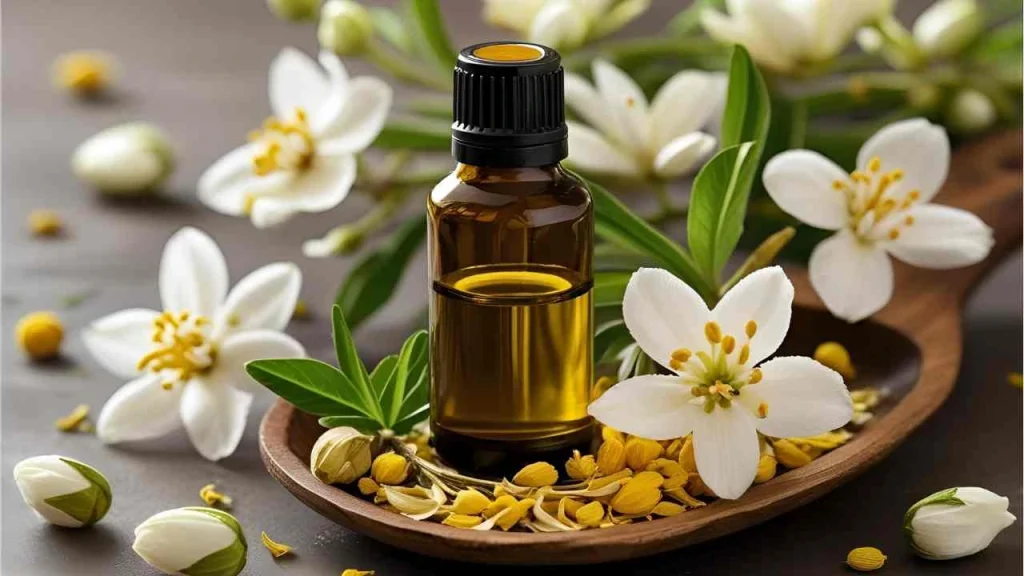
Ayurveda is a traditional form of medicine that originated in India.
- Jasmine balances the doshas (energys) of the body
- The heart is said to be improved by this supplement
- Use it in herbal blends and massage oils
- In many cultures, it is also used for weddings and holy rituals
Storage Tips
How to keep jasmine fresh?
- Store in a dry, cool place
- Avoid the sun
- Close the bottle tightly
- Use glass bottles instead of plastic
Jasmine Oil vs Other Essential Oils
| Features | Jasmine Oil | Lavender Oil | Rose Oil |
|---|---|---|---|
| Scent | Sweet, floral | Calm, soft floral | Deep floral |
| Skin Care | Brightens and Heals | Redness is soothed | Moisturizes |
| Mood Effect | Excites and uplifts | Relaxation | Comfortable |
| Hair Use | Reduces dandruff | Dry scalp can be treated with this product | Adds shine |
| Cost | Costly | Moderate | Costly |
Read Our Project Report On Beauty Products
Conclusion
Honestly, this oil is basically magic in a bottle. First of all, the scent hits you—in the best way possible. Next, it does way more than just smell pretty. For instance, if your skin’s dry, it sorts it right out. Meanwhile, feeling stressed? It helps you chill. Plus, when your hair looks dull, it steps up to make it shine.
You don’t need to douse yourself, either. Instead, just use a couple drops and you’ll notice a difference. After that, it’s super easy to work into your routine: pop it on for glowy skin, dab it on before bed for better sleep, or, if you’re feeling extra, use it as perfume.
In the end, once you give this stuff a shot, you’ll probably wonder how you ever went without it. Your body—and your nose—will thank you, big time.
FAQs About Jasmine Oil
Q1. Can I use jasmine oil daily?
It is possible, but you must always mix the oil with a carrier before applying.
Q2. Is jasmine safe for children?
You should only take small doses after consulting your doctor.
Q3. Can I use jasmine oil to wash my face?
You can, but you should dilute the solution and avoid the eyes.
Q4. Does jasmine oil lighten skin?
The product helps to reduce spots and improve skin’s glow, but does not bleach the skin.
Q5. Is jasmine oil good for pimples?
It has antibacterial properties which can reduce acne.
Q6. Can I cook with jasmine oil?
Jasmine oil should only be used externally. You should not eat jasmine oil.
Q7. How long will jasmine oil keep?
It can last for up to two years if stored properly.

